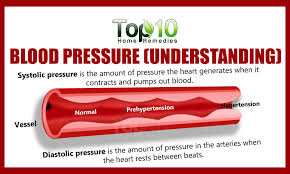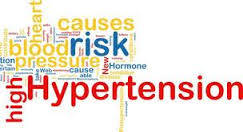 A growing stack of medical research—including Gottesman’s recent study—suggests that high blood pressure raises risk for thinking problems, early brain aging, and even Alzheimer’s disease. These three steps may help reduce risk:
A growing stack of medical research—including Gottesman’s recent study—suggests that high blood pressure raises risk for thinking problems, early brain aging, and even Alzheimer’s disease. These three steps may help reduce risk:
Know your number. “Have your blood pressure checked regularly,” Gottesman says. “People tend to ignore high blood pressure, particularly when they are younger, because it has no symptoms that you can feel or see. But it’s important to pay attention to it.”
Take care of higher-than-normal blood pressure right away. Talk with your doctor about what  blood pressure is appropriate for you. If yours is higher than recommended, your doctor will advise you take lifestyle steps such as weight loss, regular exercise, and a lower-sodium diet that features plenty of fruits and vegetables to bring it down to a healthier level. Your doctor may also prescribe drugs that lower blood pressure.
blood pressure is appropriate for you. If yours is higher than recommended, your doctor will advise you take lifestyle steps such as weight loss, regular exercise, and a lower-sodium diet that features plenty of fruits and vegetables to bring it down to a healthier level. Your doctor may also prescribe drugs that lower blood pressure.
If your doctor prescribes medications for your blood pressure, take as directed. Nearly half of all people with high blood pressure don’t have it  under control, according to the Centers for Disease Control and Prevention. One big reason: skipping medication or not taking it as directed.
under control, according to the Centers for Disease Control and Prevention. One big reason: skipping medication or not taking it as directed.
It’s long been known that keeping your blood pressure within a healthy range helps protect against heart attack and stroke. Now a recent study from Johns Hopkins University has uncovered a new risk worth sidestepping: People with high blood pressure at midlife had greater decline in key thinking skills late in life than those with normal blood pressure readings.
Source: Johns Hopkins Medicine
